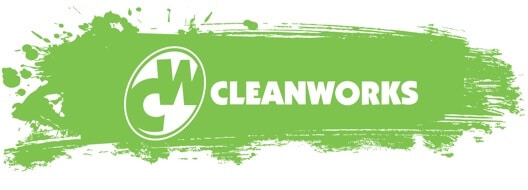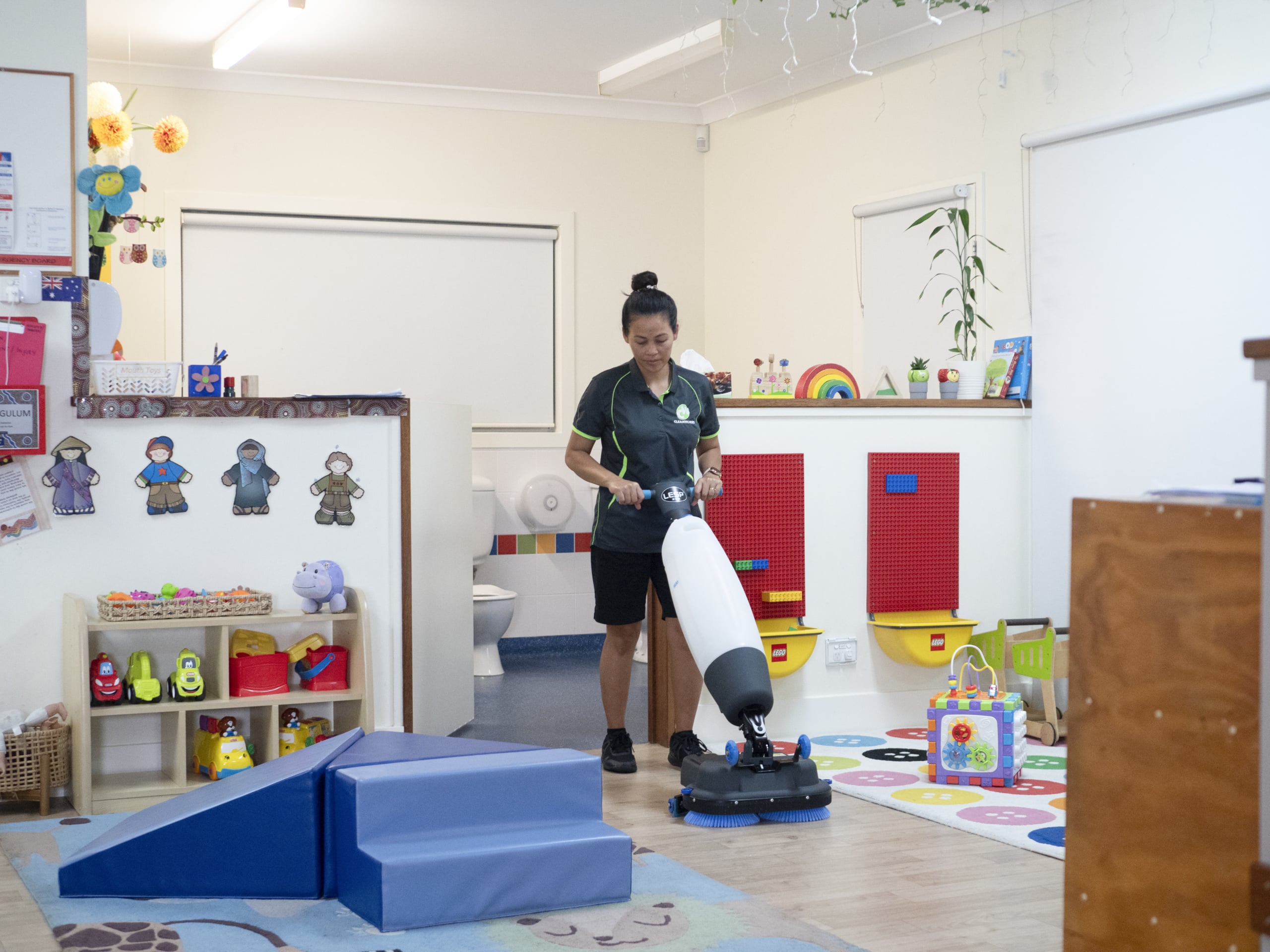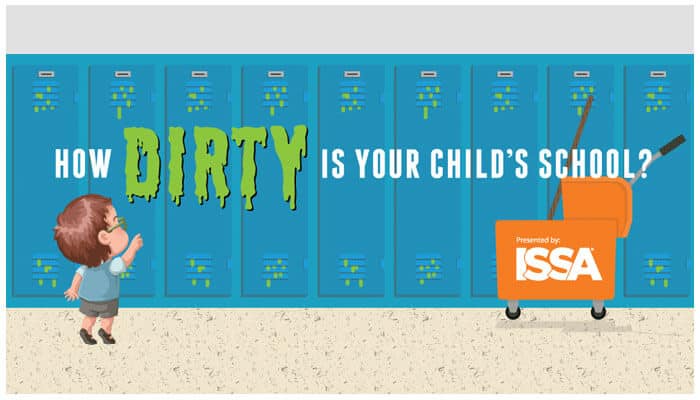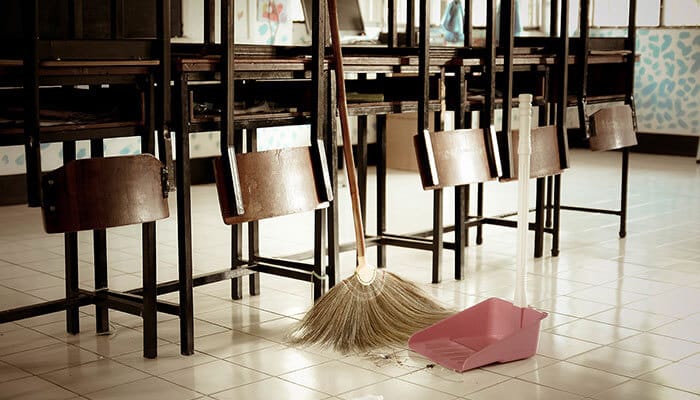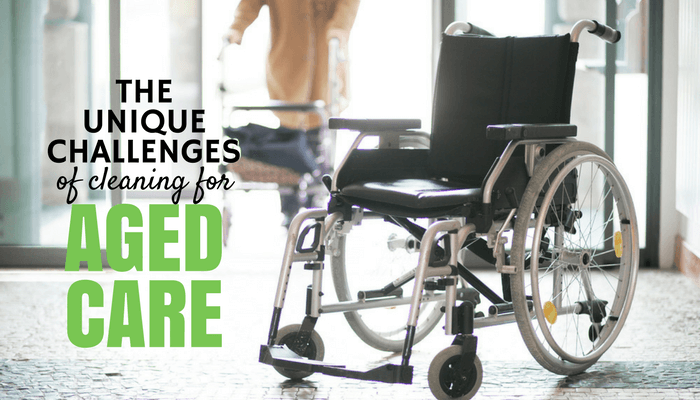Childcare centres are a child’s second home. They are one of the very few places where kids first discover the world; learn things about themselves and mingle with the people around them, as their body and mind go through their first few stages of development. It is a place for learning, fun, and making new friends. Parents expect it to be a clean, comfortable, and more importantly, safe environment for their children.
Unfortunately, due to the curious and energetic nature of younger children, childcare facilities also become a places where kids expose themselves to germs and other harmful or contagious diseases. This is where the importance of a thorough routine cleaning comes into the picture, and where the benefits of hiring professional cleaners stand out. Keep reading to find out the guidelines that Cleanworks, experts in childcare cleaning in Brisbane, follow in our commercial cleaning services.Why you need to keep your childcare facility clean
Keeping your childcare centre clean is incredibly important for multiple reasons. For one, cleaning and disinfecting means you physically remove germs in their space, making it safe for everyone, from the children to the educators and caretakers.
Moreover, a clean and comfortable childcare centre makes a lasting impression on parents, as it gives them confidence in your abilities to take care of their children. Ultimately, this helps you establish a positive reputation for your childcare facility.
Cleaning procedures in a childcare setting in Australia
While you can hire childcare cleaning services to take care of your facility for you, there are things you can do in between professional services to help keep the environment clean, and the children safe and happy. So how do you help to keep your space place? Here are nine cleaning guidelines for childcare centres:
Make hand washing a habit
Healthy habits are learned through practice, and there is no better place to teach young children good hygiene habits than in their childcare centre.
Cleaning hands, either through soap and water or through hand sanitisers, may seem like a small and insignificant action, but it is one of the most significant habits you can instill in a child.
Hand washing is probably the easiest, cheapest, and most effective way to keep your whole facility clean – it can prevent the spread of disease-causing germs (it is in fact the most effective way to kill germs off of your hands), infectious diseases, and keep both children and adults healthy.
Proper hand washing is just as important as the act of handwashing itself. Thus, children must be taught how to properly clean their hands. Moreover, children must be taught when to wash their hands (like after going to the toilet, before and after eating, after coughing, sneezing, or blowing their nose, before playing with toys, after touching animals, when their hands get visibly dirty from playing, after coming in contact with bodily fluids, etc.)
Teaching children hand washing
First, clean your hands with wet running water. Make sure the temperature of the water is just warm enough, not too hot and not too cold (or kids will hate the feeling). Warm water will encourage kids to wash their hands more often.
Then, use soap and lather up for at least 20 seconds. Often, we are too concerned about using antibacterial soap. The truth however is that any soap will do, especially in places like childcare centres, where children aren’t necessarily exposed to the dangerously dirty stuff.
When lathering the soap, teach kids to get the soap in between their fingers, the back of their hands, and under their nails. The latter is often the dirtiest part of our hands. Don’t forget to clean the wrists, too.
Lastly, rinse and dry with clean linen, paper towel, or disposable cloths.
How to encourage children to wash their hands often
Remember, children may not be good at listening to adults, but they never fail to imitate them! Thus, the best way to encourage kids to wash their hands is to show them that you are washing your hands often and properly too. Thus, you will be making sure you are modelling good hygiene habits to them.
Also, make hand washing a fun activity for kids, such as after snack time or after putting away their toys or cleaning up their arts and crafts.
Have kids count to twenty or sing songs as they wash their hands, and make sure they don’t rush the counting and singing too.
You can also use colourful soaps or sanitiser foams, or soaps that smell good.
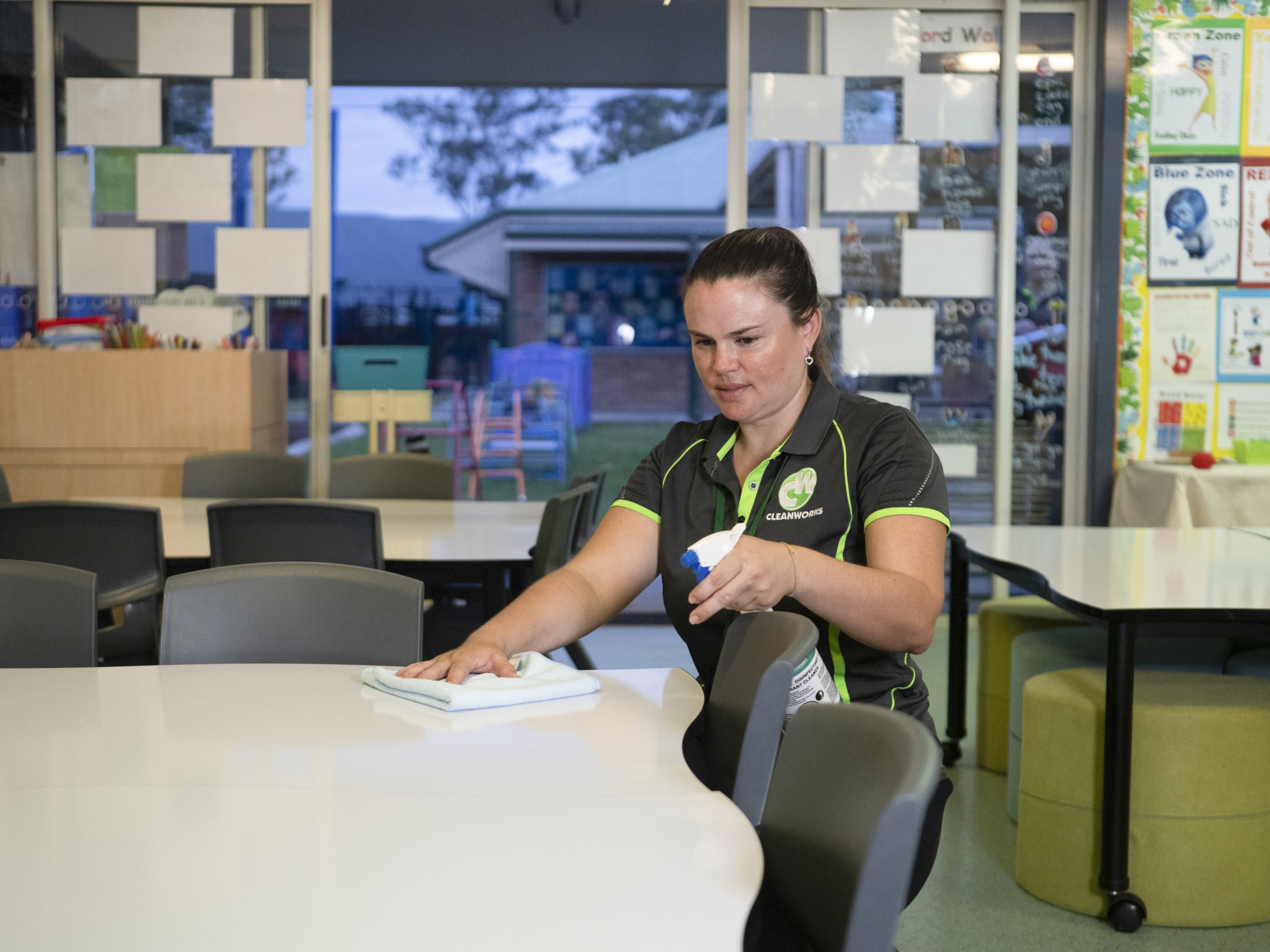
Mop and vacuum the premises daily
The floor is almost always the worst culprit for harbouring bacteria. It becomes the breeding ground of harmful microorganisms. Thus, mopping and vacuuming should be part of your daily routine – it is one of the best and easiest ways to remove accumulated dirt, grime, and organic matter. It also kills germs, prevents the spread of infectious diseases, and minimises health risks in your facility.
For efficient cleaning, use warm water, if not hot water, and mix it with the cleaning products of your choice. This makes it easier to remove stubborn dirt, grime, and even stains on the floor. If you don’t have quick access to warm water, room-temperature water, and some scrubbing will work too.
Effective mopping and vacuuming routine
- Mix detergent with warm water, and make sure to follow the manufacturer’s instructions and guidelines on how much to use
- Rub, scrub, and mop the floor vigorously and thoroughly
- Rinse with clean water
- Dry the surface using a clean cloth
When using mops, choose a mop with a detachable head (so you can wash the mop head separately in the washing machine, or replace them when they get too dirty).
Also, use disposable cloths to dry wet surfaces. You can also choose colour-coded cloths for each area in your childcare facility (for cleaning kitchen surfaces, the toilets, nappy change areas, etc.)
When vacuuming, opt for vacuums with HEPA (high-efficiency particulate air) filters. This is the most effective filter to remove dirt, dust, and various particles from the floor.
When choosing cleaning products, consider the effectiveness of the products against germs and viruses, and the amount of time they must be in contact with the surface (especially floors) in order to work.
Choose safe cleaning products
When cleaning the floors of your childcare centre, make sure you opt for safe cleaning products. While bleach is cheap and effective, it can be too harsh for children. Often, cleaning chemicals like bleach can cause skin and respiratory irritations. Children with allergies and sensitivities can be very vulnerable to these cleaning solutions. Bleach and sodium peroxide can burn skin and eyes, while detergents with sulphates, for example, can trigger asthma attacks.
Thus, when cleaning, use ordinary soap and water, and disinfect surfaces using milder cleaning products. You can also choose green or natural cleaning products if you wish.
Note that any brand can label their products with “green”, “eco-friendly”, or “natural”. Unfortunately, there is no requirement for them to list each ingredient on their label, although some do. Many of them cannot be independently verified. Thus, never assume that they are automatically safe, natural, and non-toxic. Choose those products that are recommended by doctors or expert professional cleaners in your area. Moreover, you can ask your commercial cleaners about which products they can recommend.
You can also never go wrong with home remedies and natural cleaning solutions, such as vinegar, baking soda, natural citrus bases (orange oil, etc.), eucalyptus and tea tree oils, etc. Oils aren’t very effective in killing bacteria, but they can be used alongside safe cleaning products. If you opt for using oils, make sure you use the recommended amount of drops (especially with essential oils).
Have wet wipes ready in every room
Used for a variety of reasons, wet wipes provide a quick and easy cleaning solution for whatever situation you are in, from cleaning a child’s hands, wiping surfaces, changing nappies, etc. The best thing about wet wipes, especially baby wipes, is that moist cloths can help clean, sanitise, and even moisturise the child’s skin.
Thus, make sure you have wet wipes ready in every room, for there will inevitably be messes and spills that need quick cleaning. Moreover, wipes are much easier and quicker than taking kids to the washroom to clean their hands. At Cleanworks, we can replenish your washroom supplies for you.Attend to any mess as soon as possible
Since you already have your wet wipes ready, make sure you attend to any mess immediately, be it spills, dirt, etc. Doing so will minimise the risk of accidents like slipping, tripping over, or falling, and remove unwanted stains on surfaces.
Clean all toys regularly
Toys get the most attention in childcare facilities, and often, kids share toys with their playmates. Moreover, youngsters often put toys in their mouths. Thus, toys, especially plastic toys, must be regularly washed and sterilised – at least once daily. More importantly, toys must be put aside until they are cleaned and sanitised.
How to clean stuffed toys
Stuffed toys, on the other hand, can be quite tricky to clean. The best way to clean stuffed toys is to deep-freeze them once a week inside a plastic bag for at least 4 hours. This is a great way to kill off germs, dust mites, or any allergens in the stuffed toys.
Always observe proper food preparation
Appliances, food containers, and all surfaces used for food preparation must be thoroughly cleaned and disinfected. Moreover, food must be stored at the right temperature, and spoiled food and products must be thrown away immediately.
Discourage sharing
While kids love to share their food and drinks, it is important to discourage them from doing so. Not only will this expose them to germs, but a child with a specific food allergy (nut allergy, for example), could inadvertently eat food they should not.
Move food prep area away from nappy changing area
Also, it is extremely important to have designated areas for specific purposes in your childcare centre. One of the most importantly guidelines you need to remember is to keep the nappy change area away from food preparation area.
Clean the nappy change area
As said earlier, you need to have a designated nappy change area and it should not be in close contact with your food preparation area. Not only will this prevent cross-contamination, but it will also let you allow you to clean the nappy change area more effectively using bleach.
Bleach solutions are strongly advised for preventing germ transmissions, which is highly possible in nappy change areas.
Set a cleaning schedule, and follow it
To reduce the risk of germ transmission and prevent the spread of diseases in your childcare center, it is extremely important to have a sanitary environment, and you can only achieve this if you have a cleaning schedule and follow it.
Make cleaning easy for your staff
Cleaners should have access to adequate cleaning products, equipment, and tools. Some of the most important products you need include detergents, mopping systems, microfiber cloths, and other cleaning supplies. A implementing a cleaning cart can help keep everything organised. Make sure your cleaning equipment and products are stored away from children, and they have no access to these things.
Sick staff should go home
Make sure you keep the sick staff from coming in close contact with children in your childcare facility. This may sound harsh, but it is the best way to protect them from getting infected. Young children have weaker immune systems compared to adults, and contagious diseases can transmit easily in small spaces like classrooms.
The importance of following cleaning guidelines for childcare centres
Unfortunately, you must accept that your childcare centre will never be completely germ-free. However, there are numerous ways to minimise the health risks and keep everyone inside comfortable and safe through thorough and safe cleaning.
Tips to Clean Specific Surfaces in Your Childcare Centre
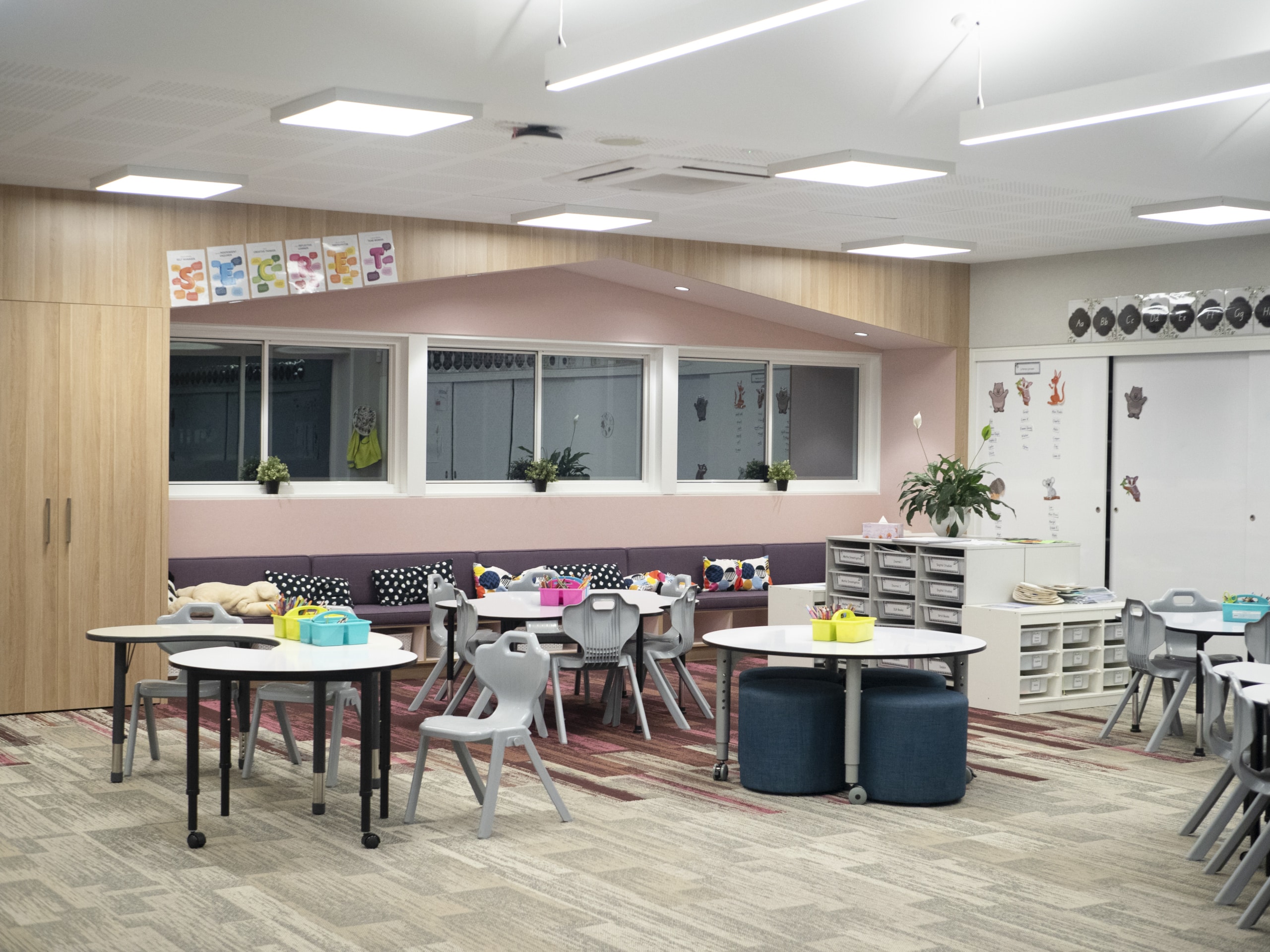
Bathroom
Bathroom surfaces and toilets must be cleaned daily, and even more often if they are visibly dirty.
If possible, there should be a separate bathroom for children that is appropriate for their needs and size (smaller sink, smaller toilet, etc.). This will allow them to do their business in the toilets comfortably.
Also, there should be appropriate disposable bins for used paper towels and other sanitary products.
Clothing and Linen
Bathroom surfaces and toilets must be cleaned daily, and even more often if they are visibly dirty.
If possible, there should be a separate bathroom for kids that is appropriate for their needs and size (smaller sink, smaller toilet, etc.). This will allow them to do their business in the bathroom comfortably.
Also, there should be appropriate disposable bins for used paper towels and other sanitary products.
Carpets, curtains, and mats
Vacuum your carpets and mats every day, and steam clean at least once every 6 months.
Wash curtains every 6 months, or when they are visibly dirty.
You can also spot clean carpets, curtains, and mats to remove stains.
Nappy change area
Clean the area thoroughly and disinfect it after each nappy change. Make sure to remove any feces and urine spills from the mat and table, and disinfect the surface using detergent and warm water. Rinse thoroughly and dry the surface using single-use paper towels. It would be best to have two nappy changing areas in your childcare facility.
Also, at the end of the day, remove the nappy change surface (changing mat or waterproof sheet), wash them thoroughly with detergent, and dry them in the sun.
Toys
Different toys require different care and cleaning. Most toys, however, must be washed daily. Use warm water and detergent when washing toys, and rinse them thoroughly in running water. Some toys are safe to clean in a dishwasher, but not at the same time as the dishes.
Books, cloth toys, and stuffed toys must be dried by sunlight. Moreover, books must be checked thoroughly for visible dirt and must be cleaned using a moist cloth with safe cleaning products or detergent on them. Also, make sure they are fully dried before putting them back on their shelves.
As much as is possible, try to only have washable toys in your childcare centre.
Sandpits
Sandpits can be fun, but they are potential germ houses too. Thus, they must be cleaned regularly to prevent bacteria buildup and avoid health risks.
When not in use, make sure you closely cover sandpits. Remove any sharp objects and potentially dangerous items from the sandpit and discard broken toys.
Keep foreign objects from the sand by keeping the sand depth at a level that you can easily rake over before each use.
Discard any sand contaminated with animal or child feces and other bodily fluids. Use a shovel to dispose of the sand and place it inside a plastic bag. Rake the sand and expose the sandpit to sunlight.
Make sure both adults and children wash their hands thoroughly before getting into the sandpit. Also, replace the sand regularly (at least every 2 years).
The Takeaway
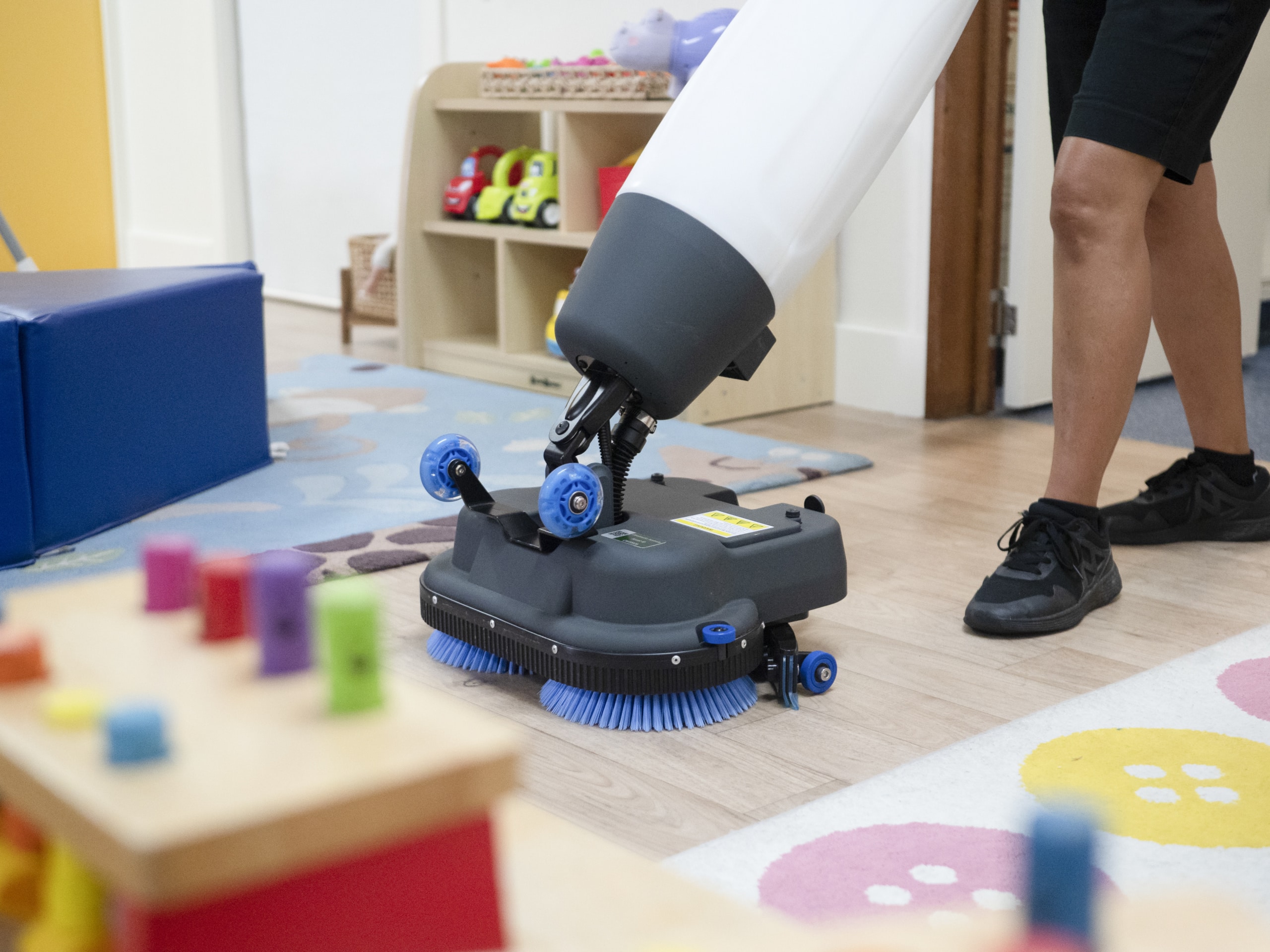
A clean childcare centre is not only a safe place for the little ones to have fun, but it also allows you to do your job well and take care of your most precious clients – the children. Follow the steps above to ensure they are safe and healthy, or better yet, hire professional cleaners to do the dirty work for you.
Choose the pros
Childcare centre cleaning can be tedious – there are so many things to clean and tons of guidelines you need to remember to make sure everything is safe. While daily cleaning can help, it is not enough. To remove the guesswork and the shortcomings of daily cleaning, you can hire commercial cleaning services and let the expert cleaners take care of everything for you.
Expert cleaners have all expertise and tools to deliver the thorough cleaning you need. Obviously, you need to choose a cleaning business provider with the experience and right expert cleaners for the job, such as Cleanworks.
